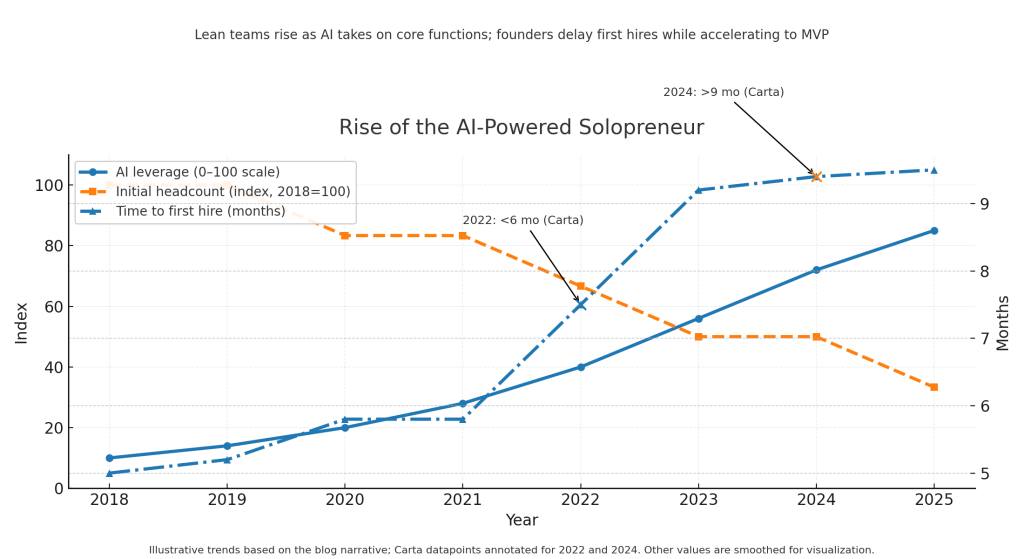A New Blueprint for Business: The Rise of the AI-Powered Solopreneur
Beyond automating simple tasks, AI is now capable of acting as a strategic partner, enabling a new, ultra-lean business model that was previously inconceivable. This shift is giving rise to the “solopreneur”—an individual founder who can perform the work of an entire team, potentially building a billion-dollar “unicorn” company single-handedly.
This is not a distant future; it’s happening now. Consider the case of Sarah Gwilliam, founder of Solace, a startup designed to help people manage the affairs of their late loved ones. Without a background in software engineering, Gwilliam partnered with an AI-powered incubator called Audos. The platform’s AI agents assisted with everything from initial setup and marketing to product development, functioning less like a tool and more like a co-founder.
This model represents a significant evolution in business strategy. For years, company growth was often measured by headcount. Today, a new badge of honor is emerging: operational efficiency. Founders are discovering that they can achieve more with less, leveraging AI to handle complex functions that once required entire departments. According to data from Carta, a firm that manages startup equity, the typical time it takes for a founder to hire their first employee has increased from less than six months in 2022 to over nine months in 2024, highlighting a clear trend towards leaner initial operations.
As we see in our work with intelligent automation, this is about more than just cost-cutting. It’s about empowering visionaries to execute their ideas with unprecedented speed and agility. By removing many of the traditional barriers to entry, AI allows founders to focus on their core mission and unique expertise.
Of course, this new paradigm also introduces new challenges. An environment where ideas can be launched quickly is also one where they can be copied quickly, making a sustainable competitive advantage more crucial than ever. Furthermore, the reliance on AI tools often means a dependency on the major tech firms that provide them.
Successfully navigating this landscape requires more than just a groundbreaking idea; it demands a robust strategy for bringing that idea to market. Turning a concept into a market-ready product involves rigorous validation, financial modeling, and a scalable business plan. For founders leveraging these new AI capabilities, our Commercialization Services provide the structured guidance needed to translate innovative concepts into tangible, thriving businesses.

